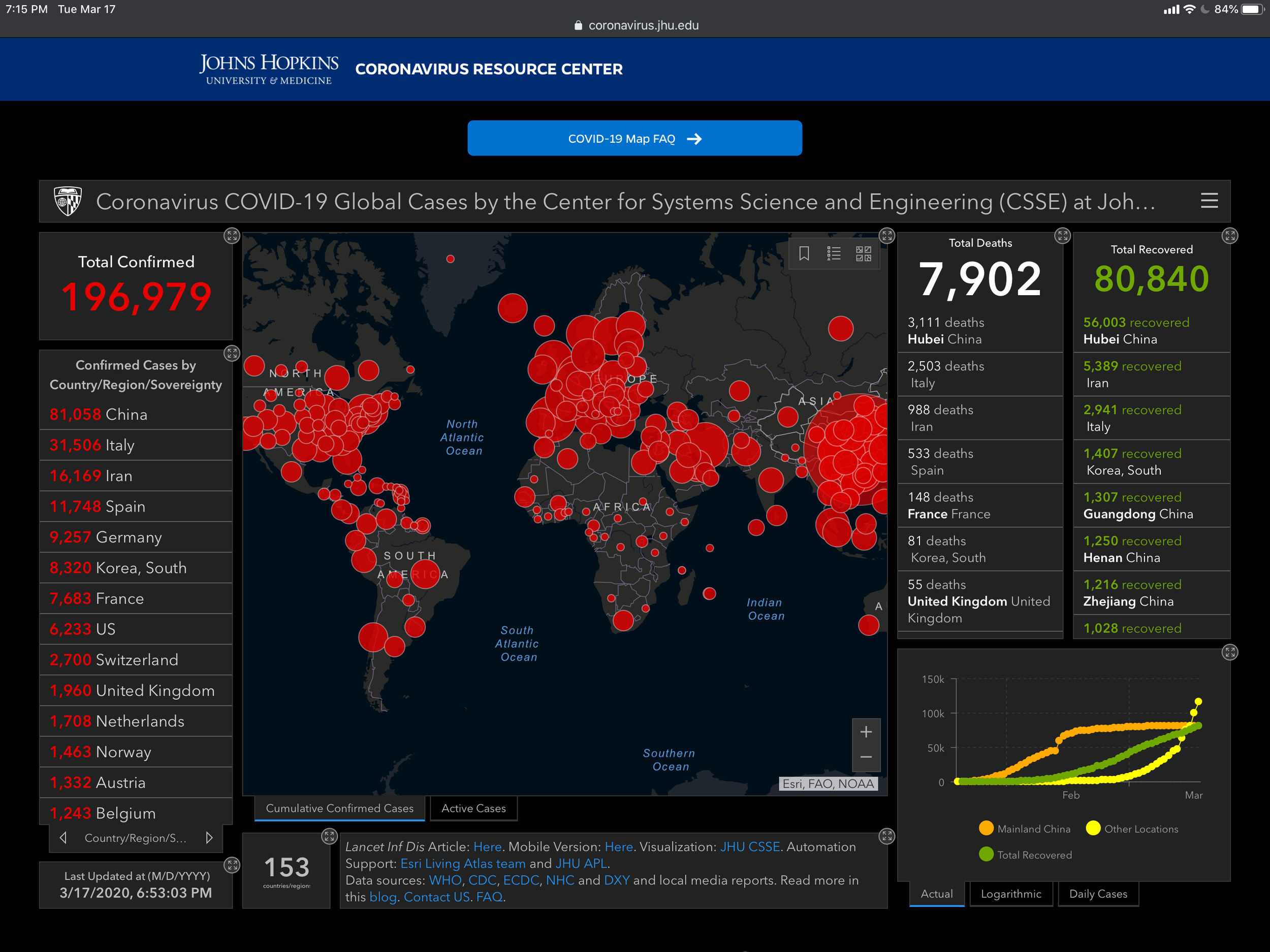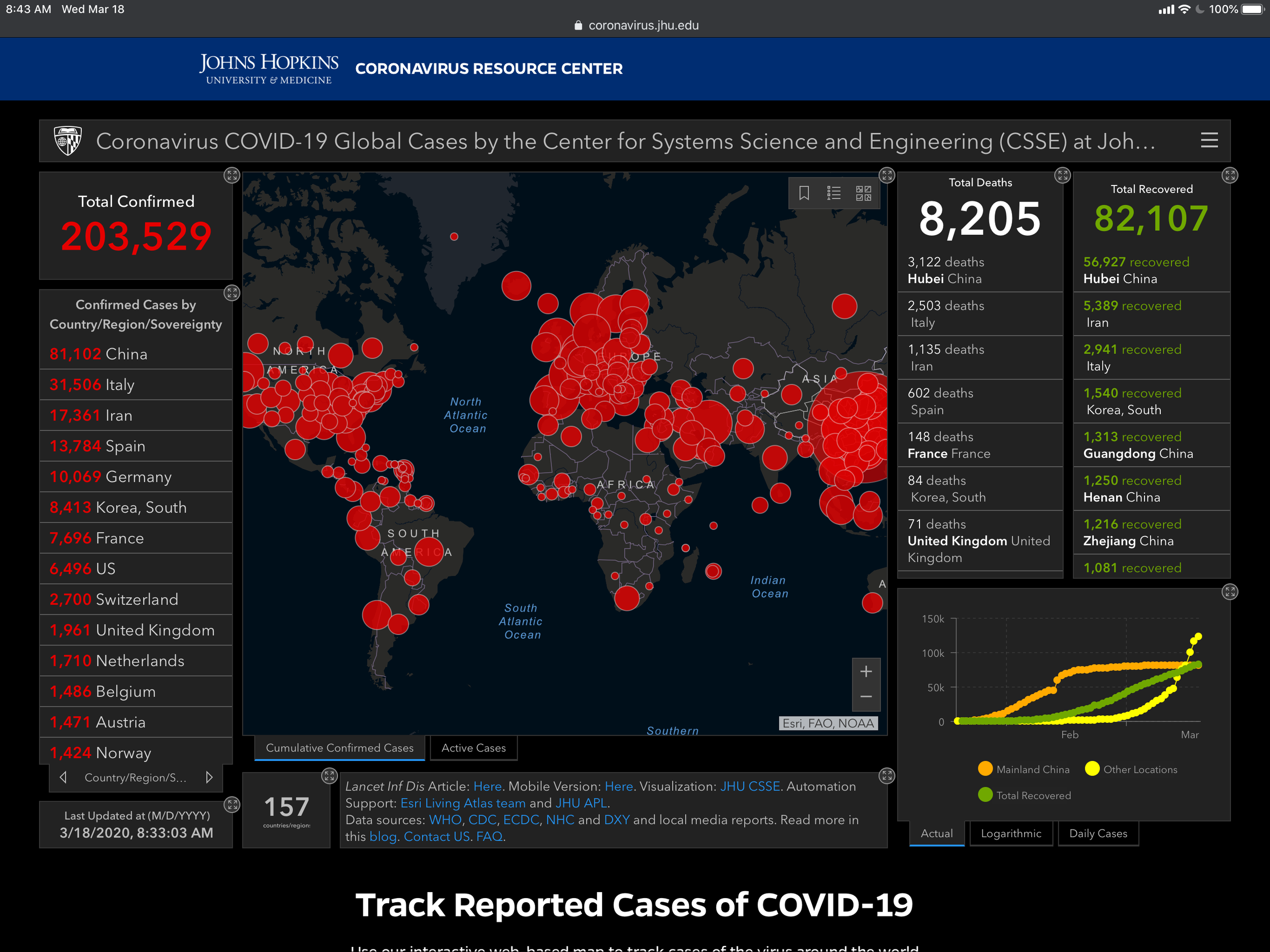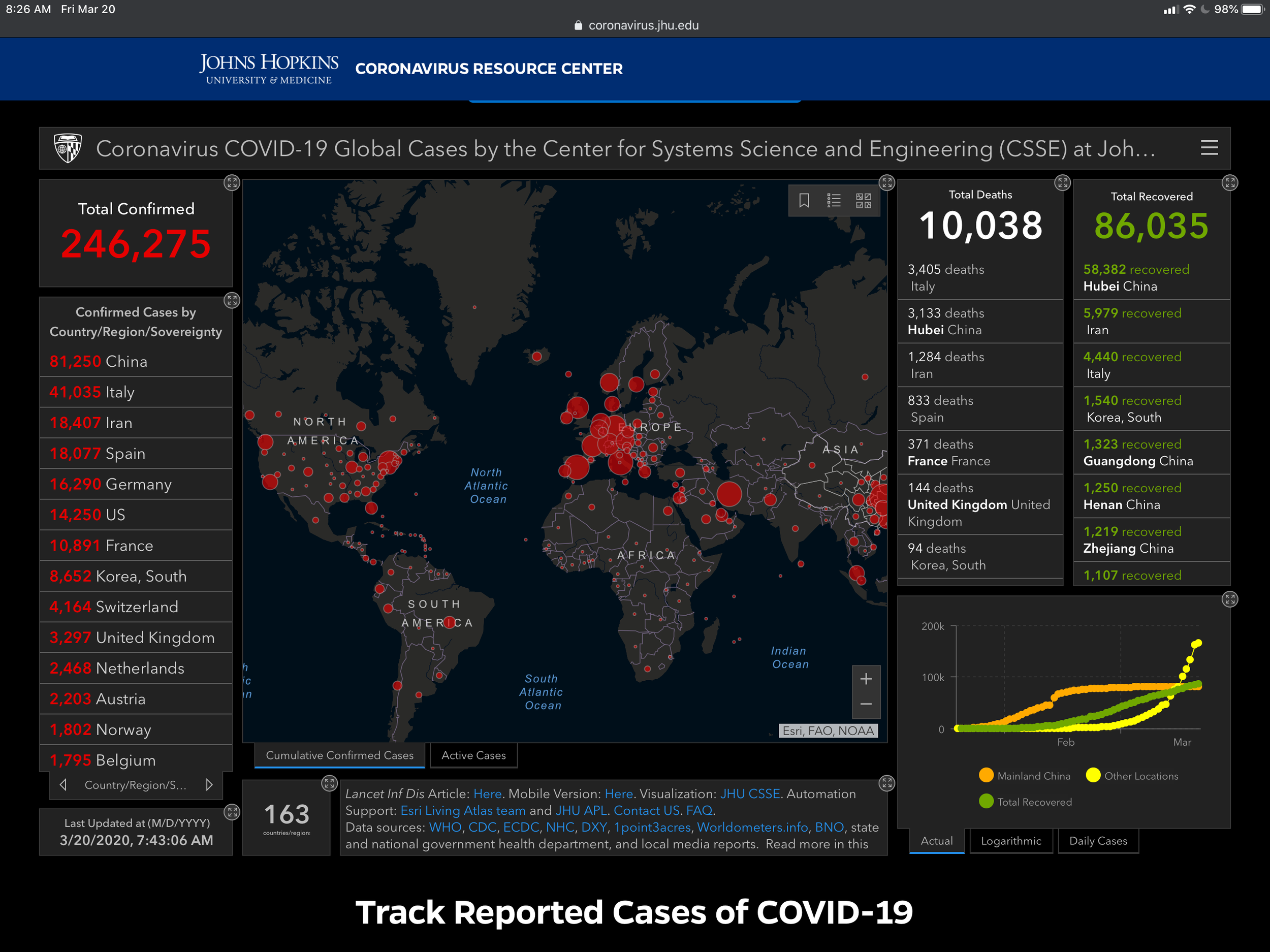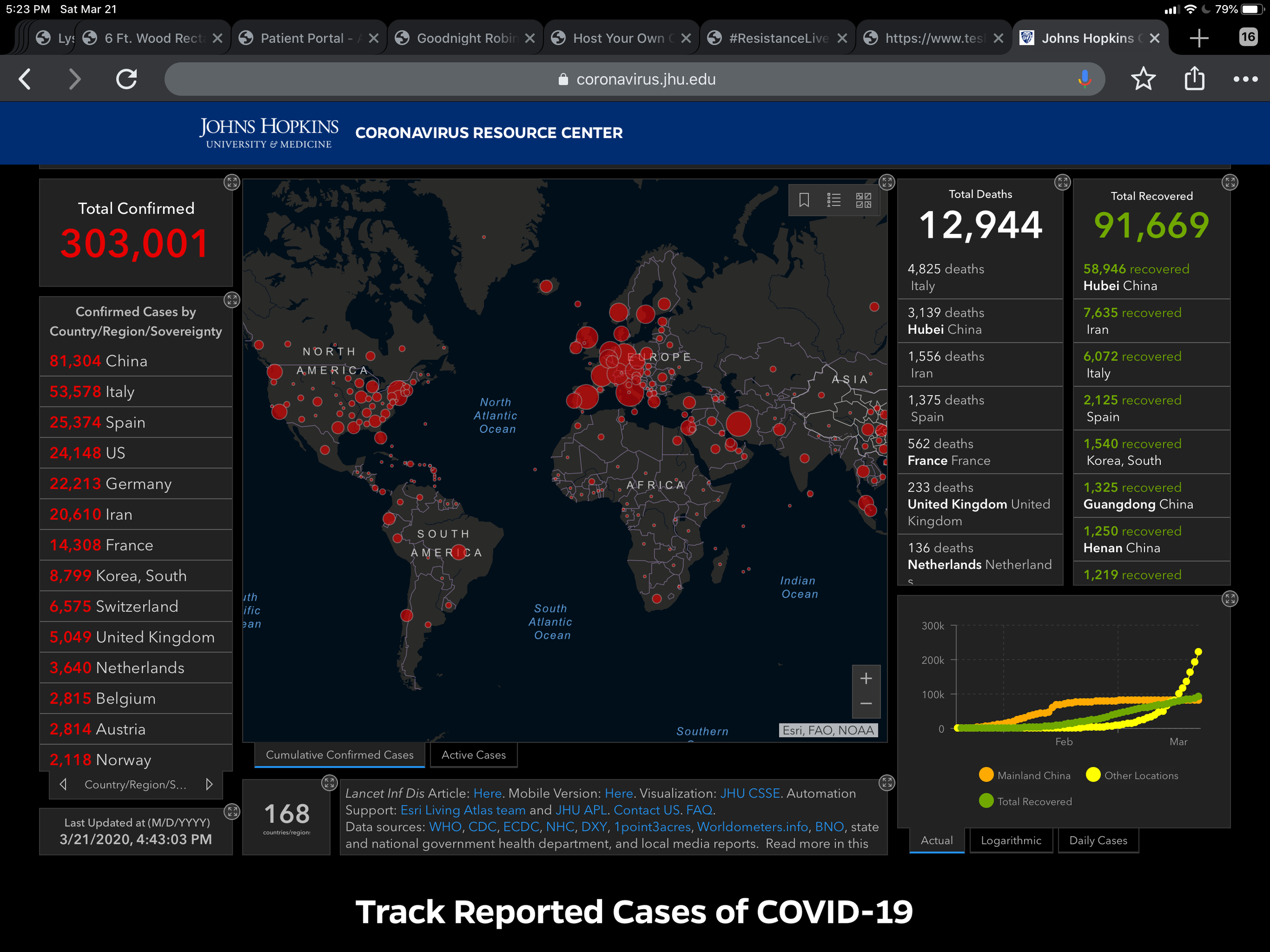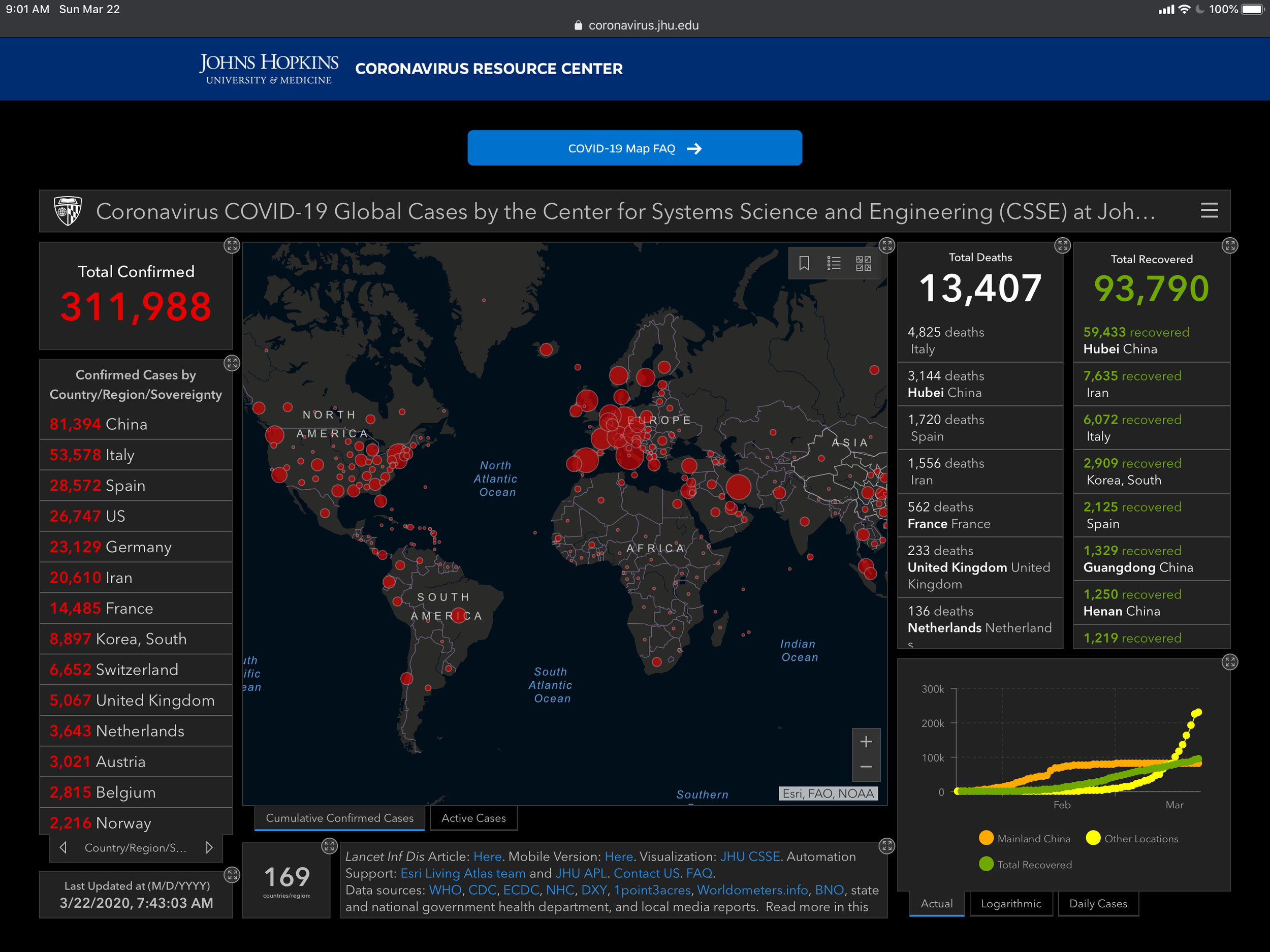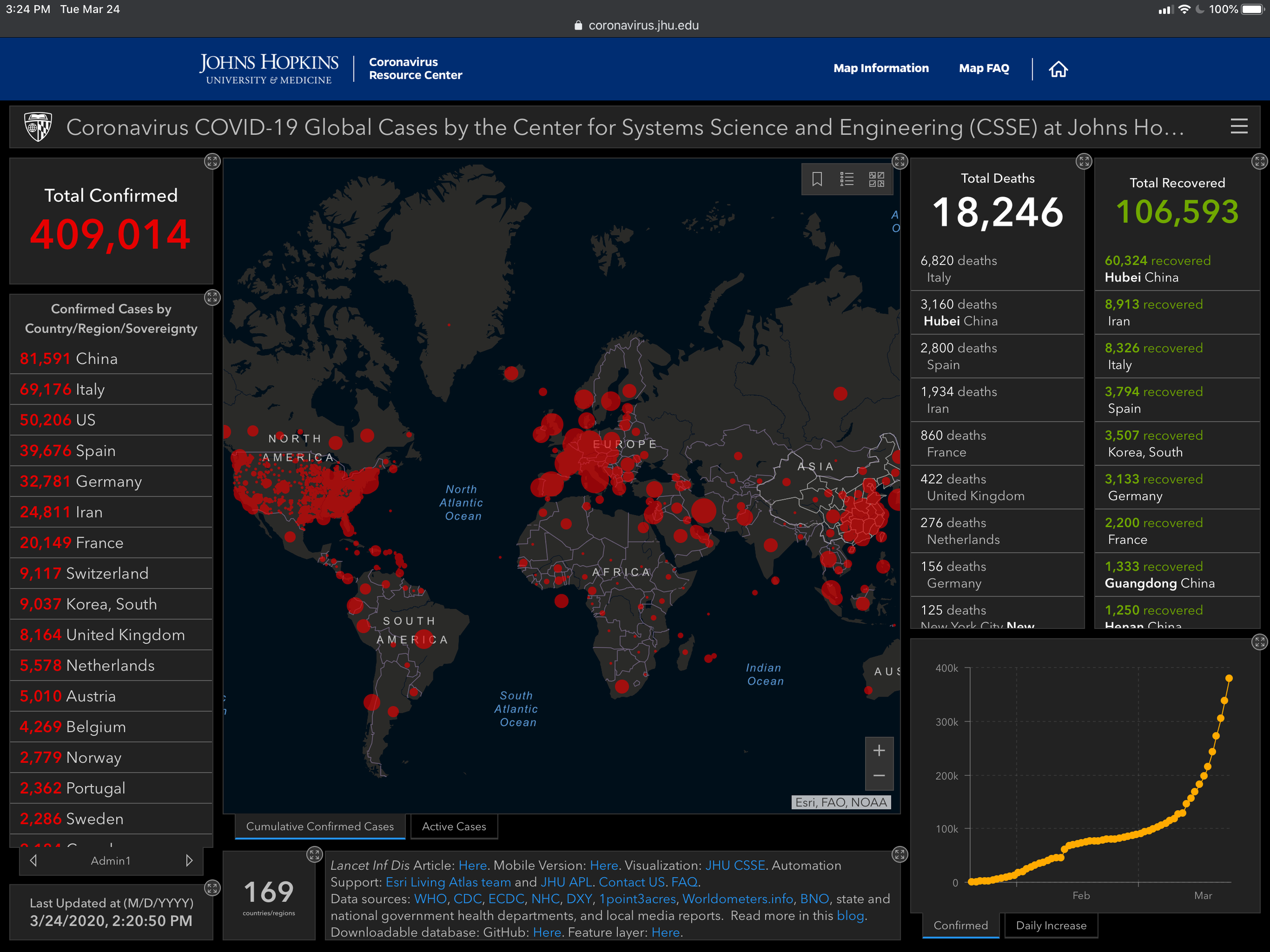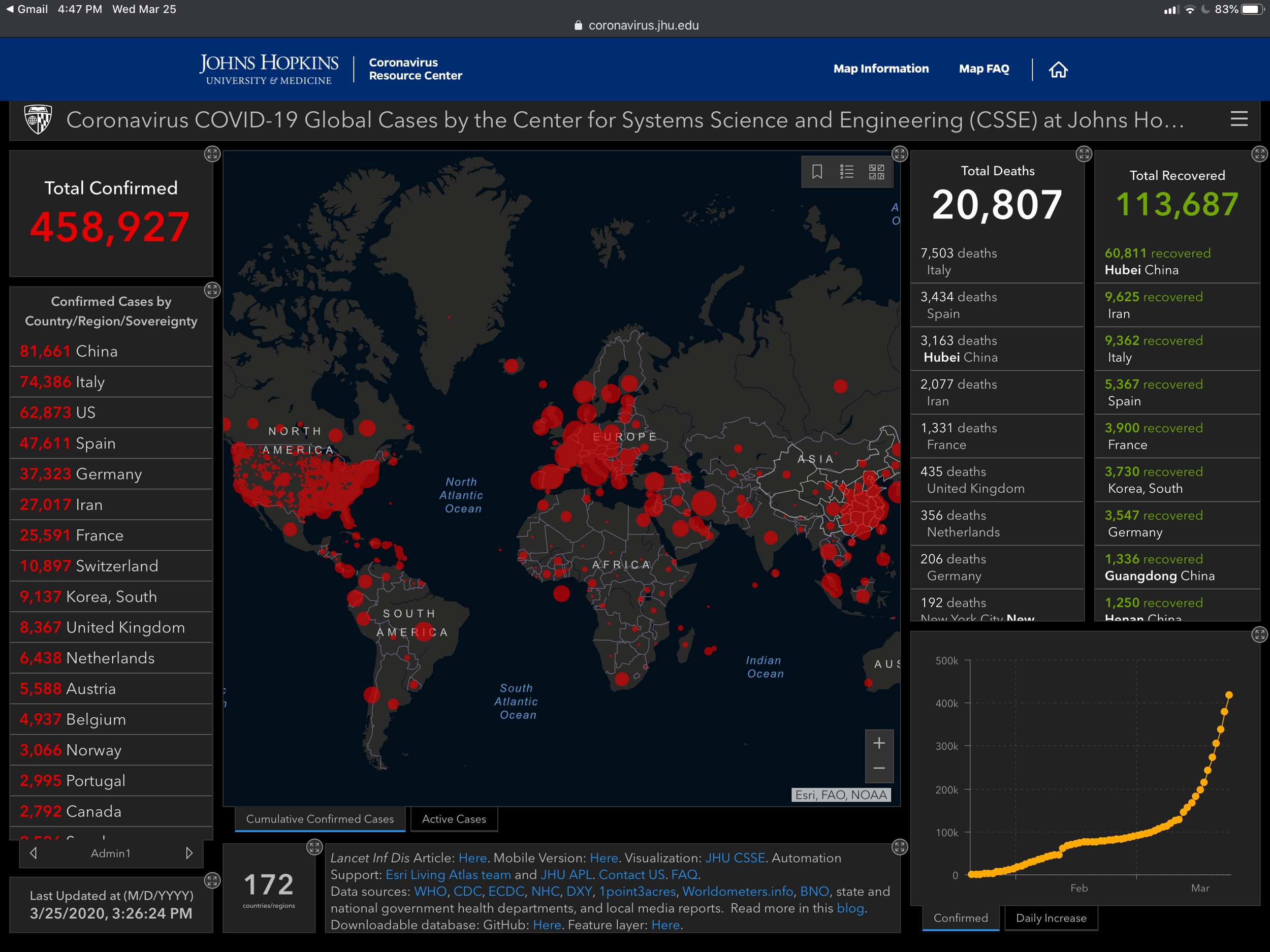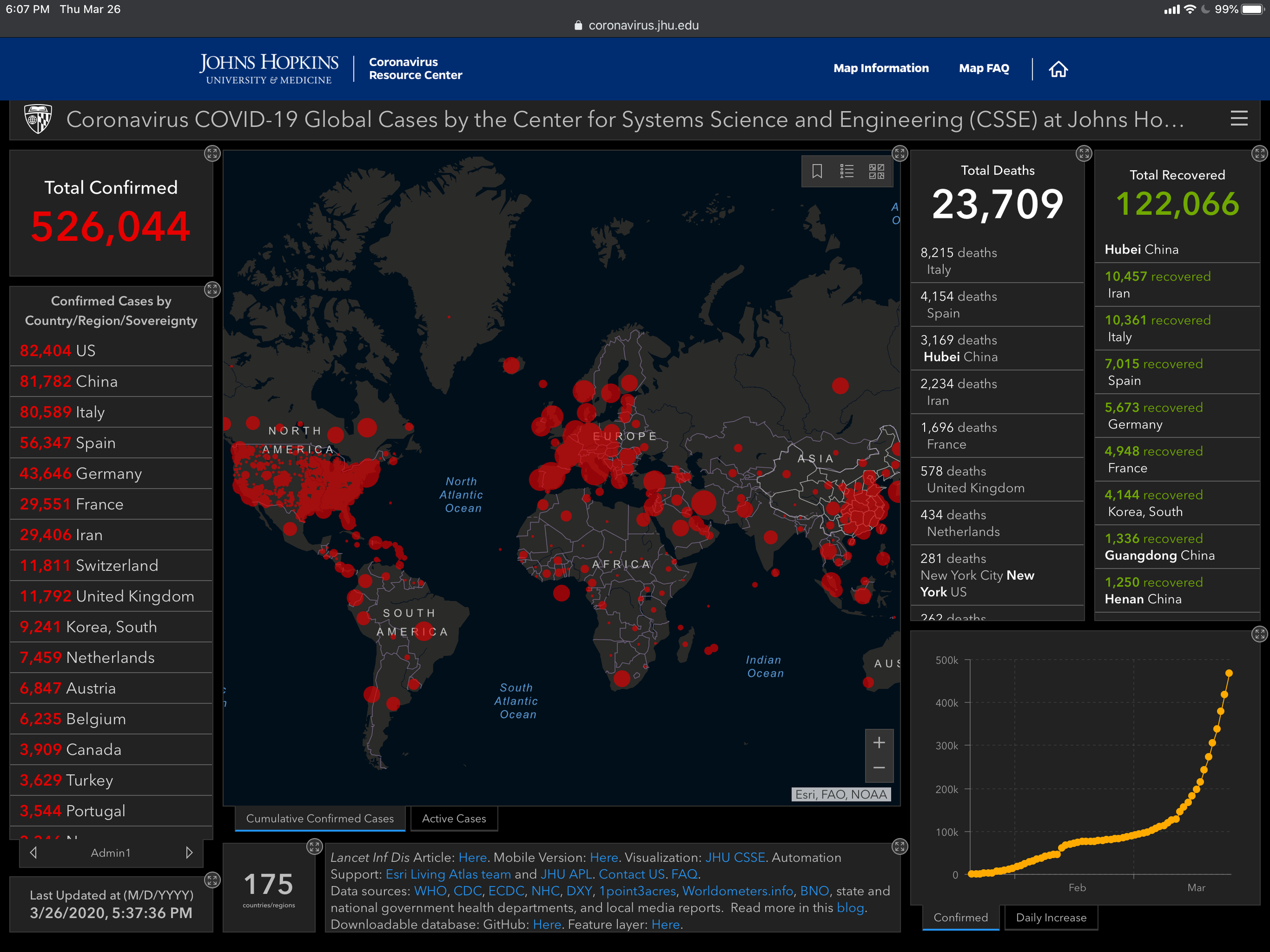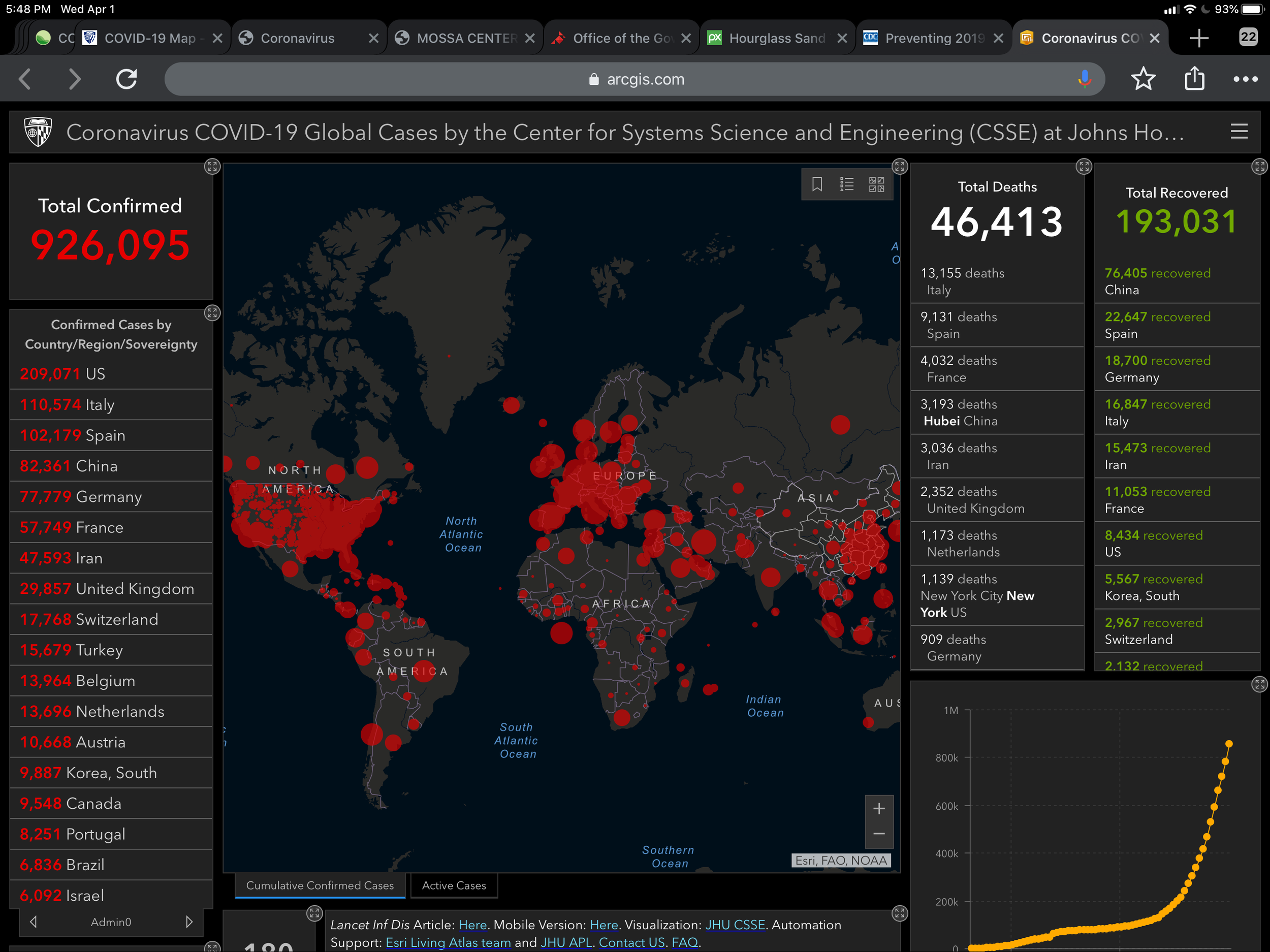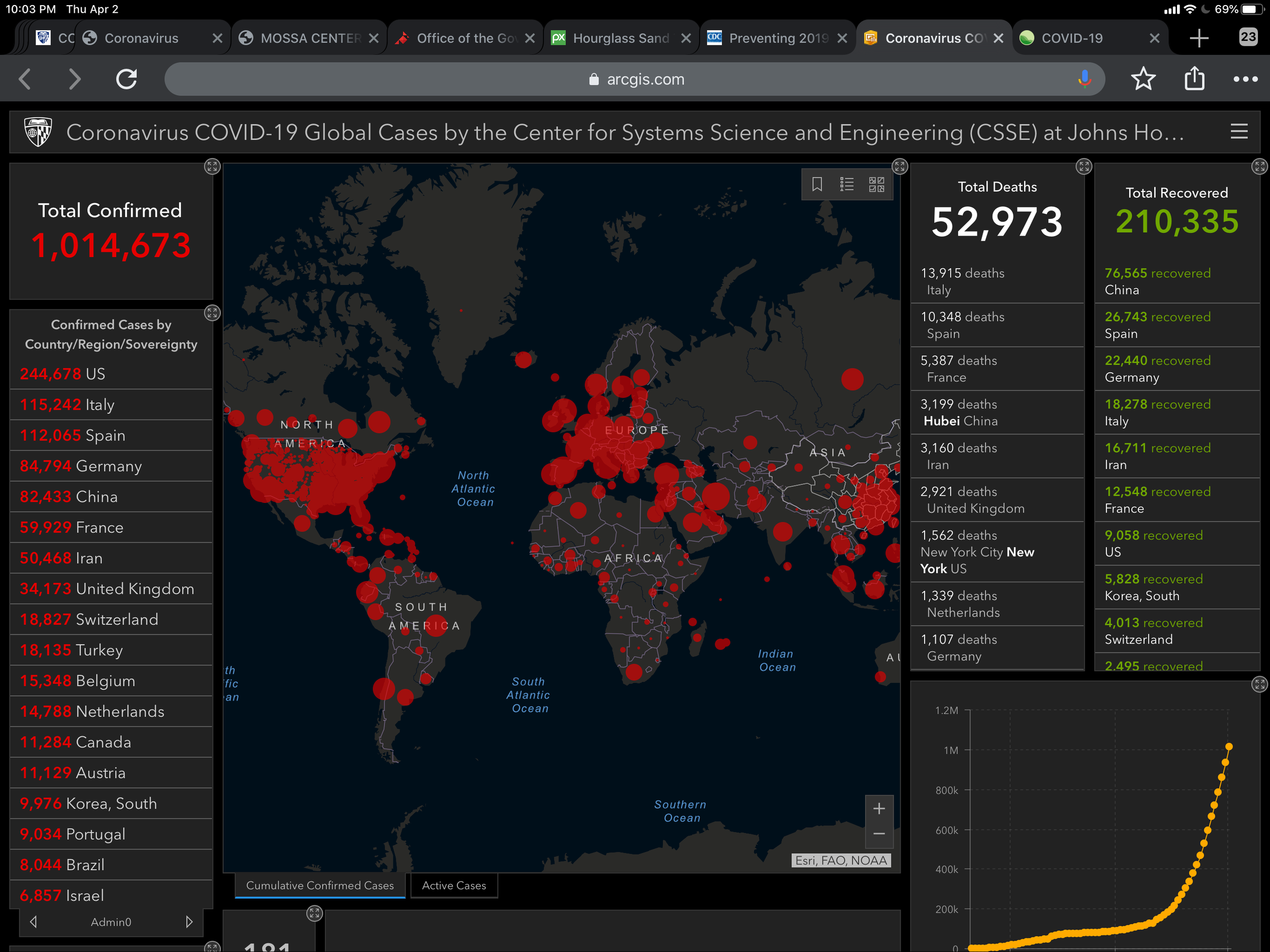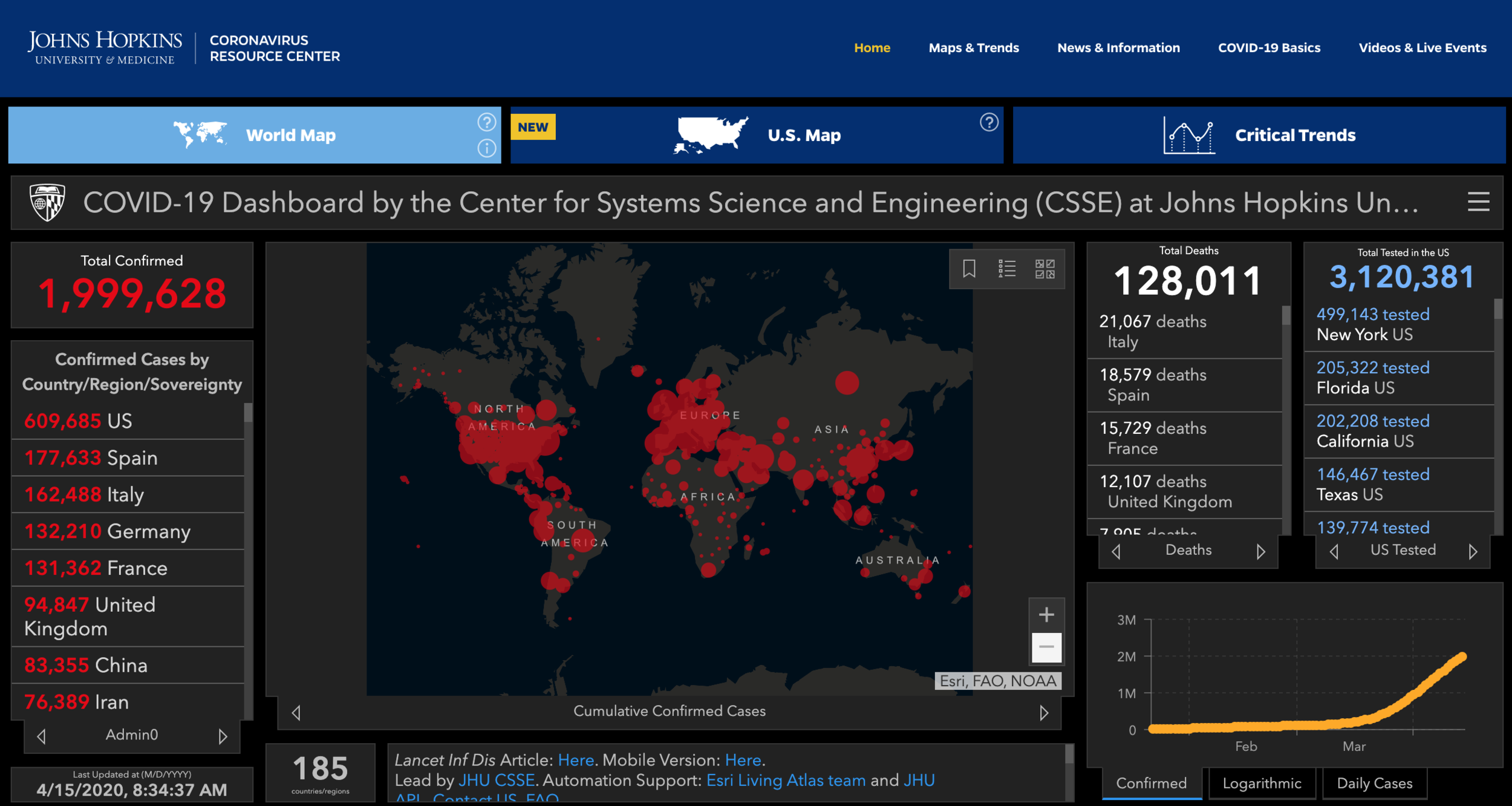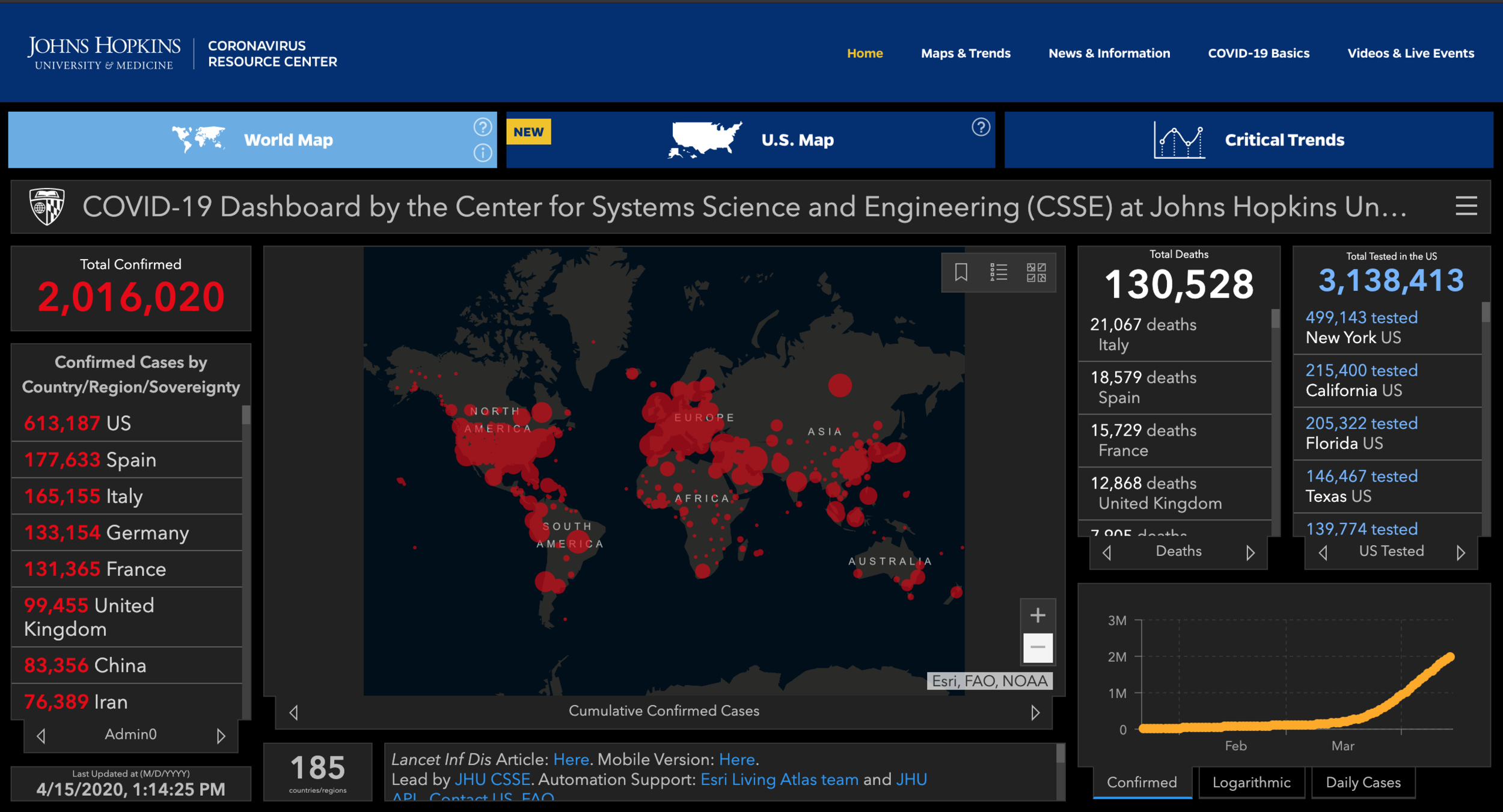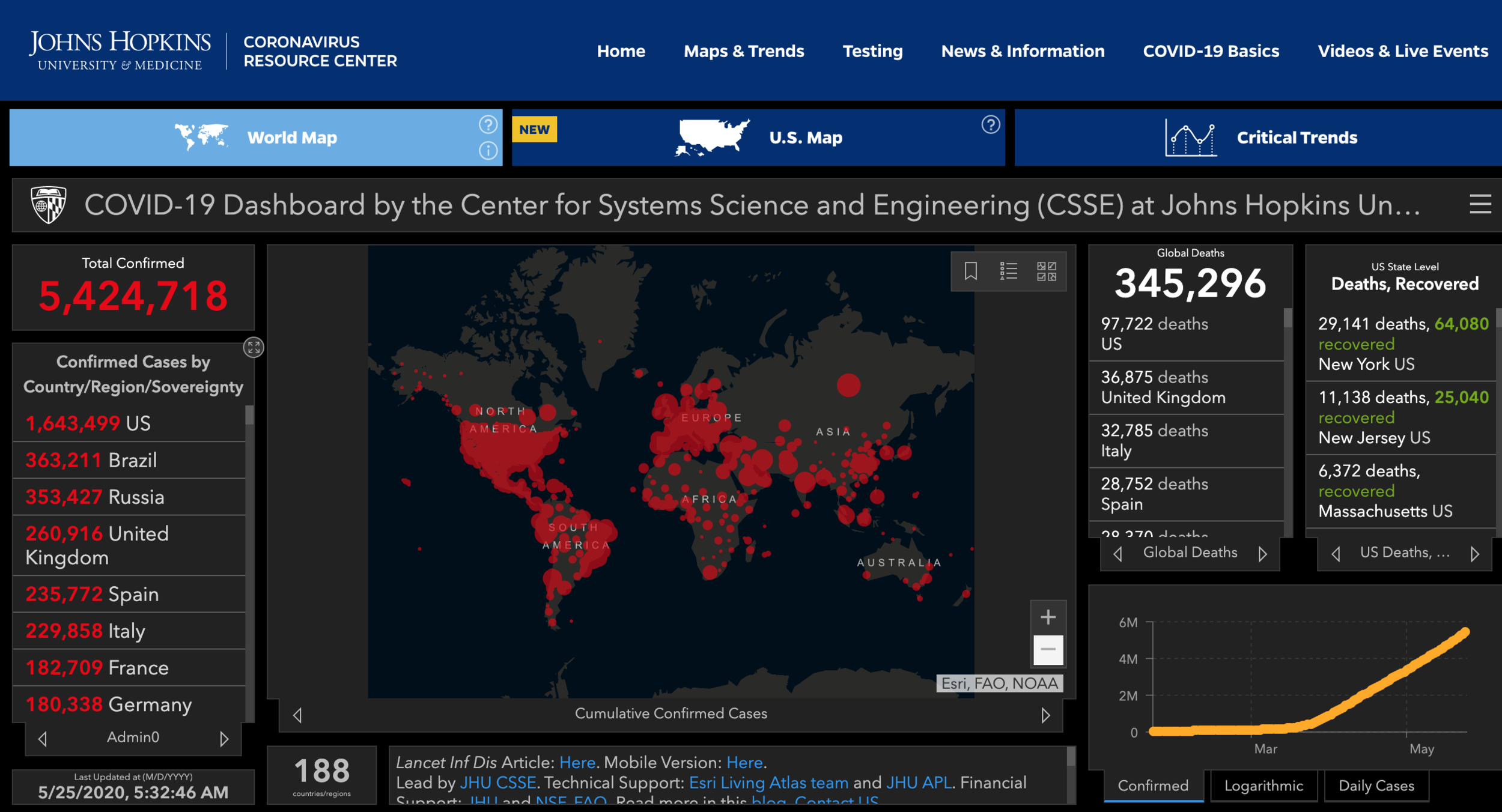Linear Mind, Exponential Suffering
by Lyssa Adkins
“Hey, hey,” my husband says to me as he climbs into bed after his late-night news fix. “Hey, I have to tell you the number.” He says, “We are right at 100,000. Can you believe it? I thought it would take at least a few more days before we got that close. We’re going to cross it today. It came up so fast.” I feel the shot of adrenaline through my body/mind. My heart starts pumping, I am ready to jump out of bed and do…what? Nothing. Other than wearing my mask, taking this seriously, caring about strangers and voting what else can I do? I know that the 100,000 cases a day number means maybe 1,000 people will die according to the US’s current death rate (the death rate percentage seems exceptionally hard to find); right now, well more than 1,000 are dying each day and that number is climbing at an alarming rate. The other 99,000 from this one day of infections will have a preexisting condition for a virus about which we know scant little. Some of them will live with long haul effects. This is the suffering produced in just one day and we have had days upon months and coming up on a year of it. The suffering is astounding. Sometime it knocks me off my feet.
It’s been knocking me off my feet since early March when I started to tune into the data on the John’s Hopkins map. I would obsessively refresh the screen and watch the numbers on the map change, astounded that they were climbing so fast. To soften the blow, I would steel myself by guessing high what the next number would be but it wouldn’t be enough. Most of the time the number was higher than my high guess, knocking me off my feet anyway.
Perhaps we human beings are just not geared for exponential effects. I feel it in myself every time I expect a high number, refresh the screen and am shocked to see an even higher number. Look up “linear thinking and exponential growth” and you will get a host of resources, mostly about business, technology and climate change, all saying the same thing: the human mind struggles to project exponentially because we humans think linearly. Yet, the world is changing exponentially.
Years ago I read a book about tipping points, doubling and exponential growth. It’s been so long ago I can’t remember the author or book title and the exocortex of the Internet search can’t come up with it, either. But I remember one notion in that book so clearly. It was the idea of the “last doubling” that would send the population over the edge, or over the tipping point. The book asserted that, as humans, we would be so poor at projecting the exponential nature of growth and so unable to understand changeable doubling rates that we would not be able to detect when we are getting close to the “last doubling” which would then send us over the tipping point. I’m not sure what the tipping point or points might be in the COVID-19 pandemic, and I’m clear that I would not be able to see them coming, linear thinker as I am. But, I worry about them.
Just to take you on a little journey with me through my early obsession with the data and the consequences it represented…
Here are some resources I came across as I was searching (in vain) for that danged book I read about doubling rates and tipping points:
The Difference Between Linear and Exponential Thinking
How to Create an Exponential Mindset
Visualising the doubling time of COVID-19 allows comparison of the success of containment measures
Cognitive bias: Compassion fade. The predisposition to behave more compassionately towards a small number of identifiable victims than to a large number of anonymous ones.
This blog post was initially posted at LyssaAdkins.com on Nov 1, 2020

